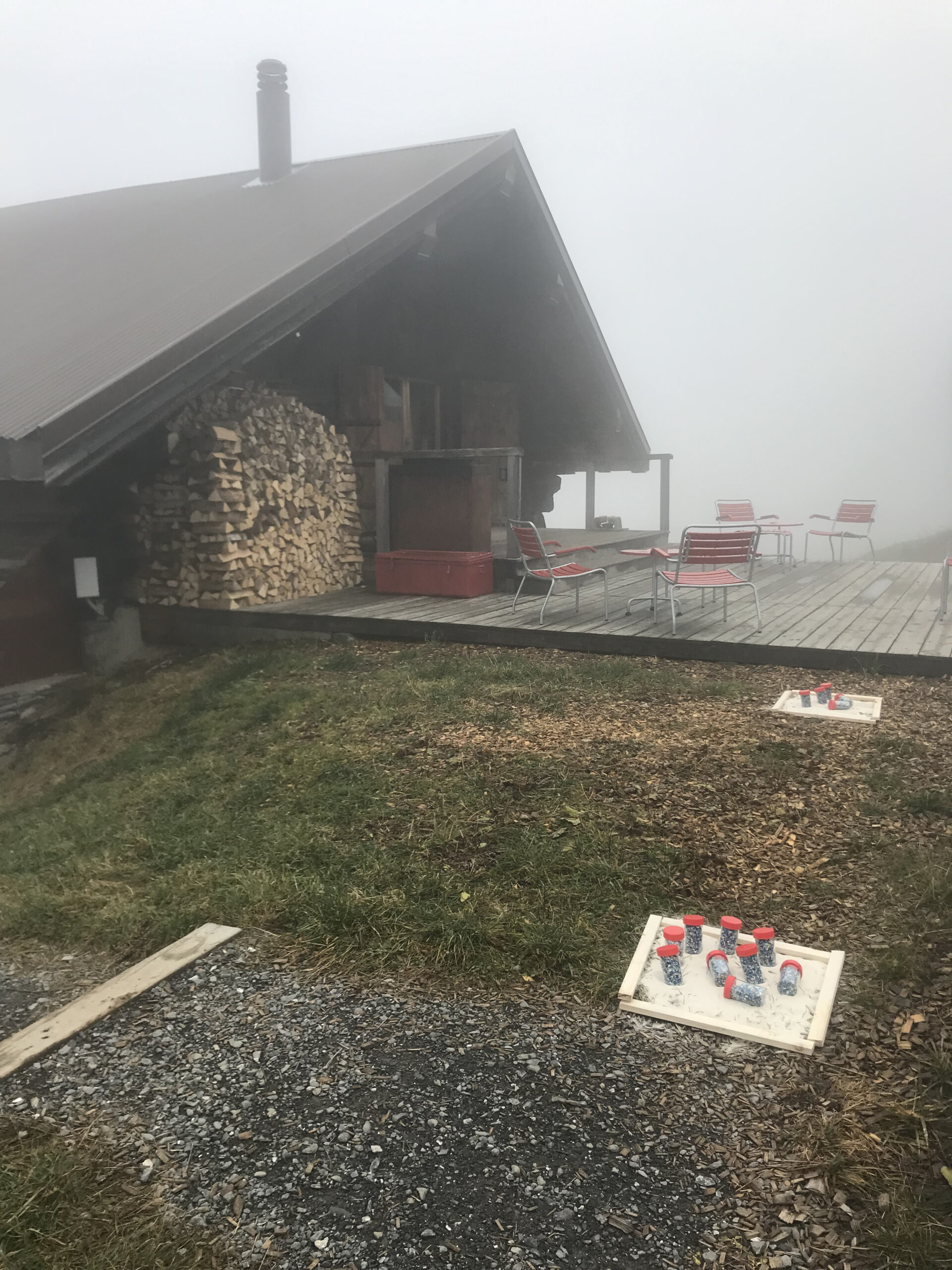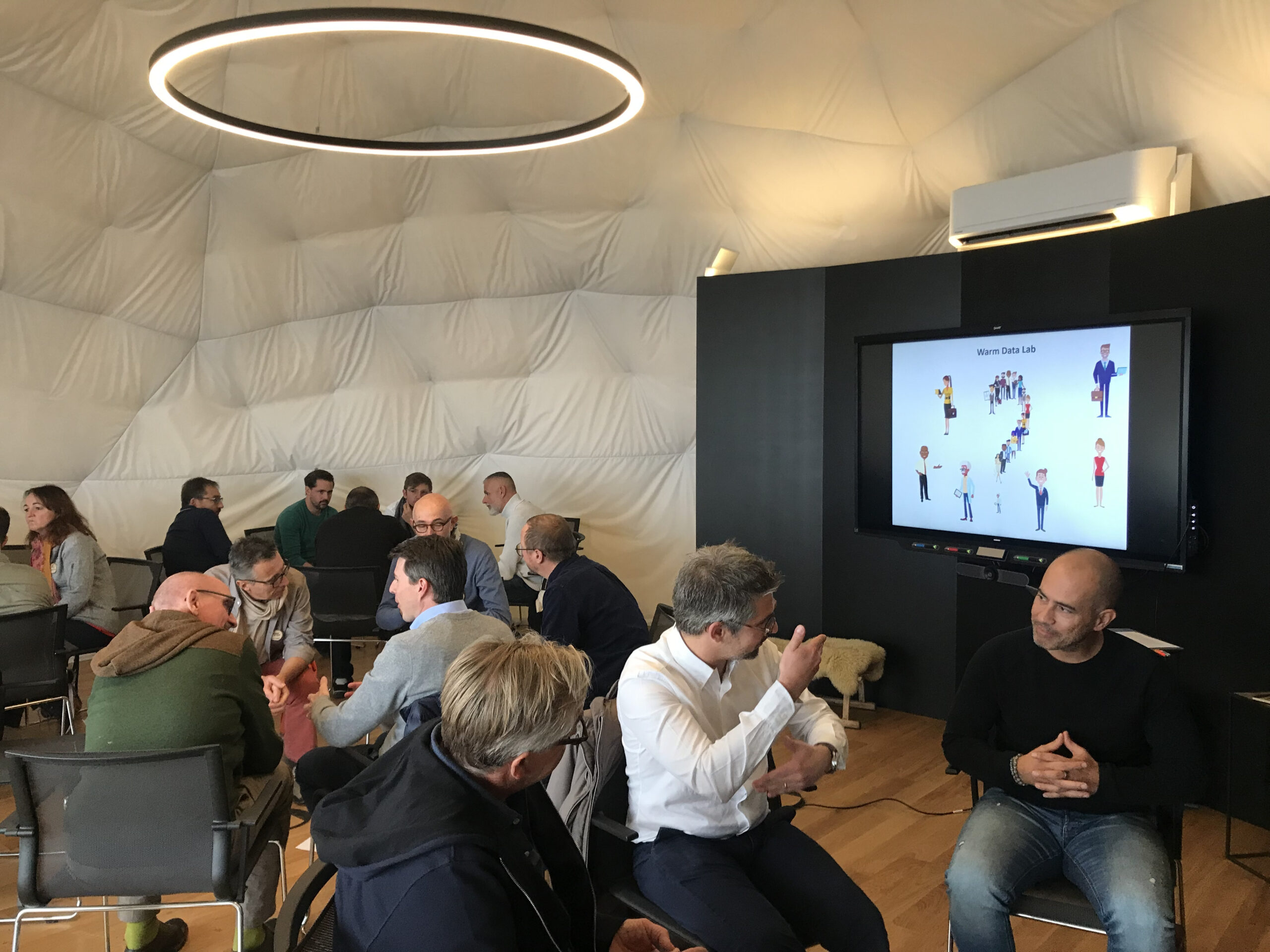 On November 28, we had the great pleasure of hosting an afternoon of workshops on the plastics crisis at the Whitepod Global Community. This community, composed of leaders of Swiss companies of various sizes and sectors, meets every year in Valais in the fabulous Whitepod Eco-Luxury Hotel complex in order to exchange on social and environmental issues, and to promote the development of small or large scale actions.
On November 28, we had the great pleasure of hosting an afternoon of workshops on the plastics crisis at the Whitepod Global Community. This community, composed of leaders of Swiss companies of various sizes and sectors, meets every year in Valais in the fabulous Whitepod Eco-Luxury Hotel complex in order to exchange on social and environmental issues, and to promote the development of small or large scale actions.
The meeting point was fixed at the end of the morning at the Cerviers restaurant but without any other information on the program and the theme of the day. It is thus full of curiosity and with a picnic in the bundle, that the group went up on foot to reach the meeting place located higher on the mountainous side of the hotel complex. On the way, despite the fog, we distinguish with enchantment the 18 pods and 9 huts of altitudes of the eco-complex.
Once we arrived in the warmth, and after a vegetarian and local lunch, it was time for Race for Water to embark the group of about 30 people to discover the extent and the stakes of the plastic crisis.
The experience begins with a Warm Data Lab guided by Joséphine von Mitschke-Collande and Heiko Specking. Their methodology allows us to take a step back and better understand the complex problems and systemic challenges of our contemporary society. The audience is asked a single question, “What does living mean to you?” but the room is divided into small groups to reflect on it from different angles: the economy, the family, identity, health, the media, science. Everyone is invited to change groups as they please. The ideas flow, the minds open up.
After a first debriefing, it was time to get to the heart of the matter: the plastic pollution of the oceans. For this, nothing better than the latest film produced by Race for Water and directed by Peter Charaf: “Plastic: collective suicide! In this film, for the moment reserved for private broadcasting, we share in 30 minutes our vision of the main issues of this crisis through images and testimonies collected during our two worldwide expeditions. The film makes you think. It gives orders of magnitude and shows that the plastic crisis is not only a problem of plastic pollution in the oceans. It is much more profound and affects many aspects of our society.
For the rest of the day’s program, we wanted to go deeper into some of the impacts of the plastic crisis. To do so, we called upon two exceptional speakers. Jane Muncke, General and Scientific Director of the Food Packaging Forum, presented us with 6 key messages on the health risks currently involved in plastic food packaging. Then, David Azoulay, Director of the Geneva Office and Environmental Health Program for the Center for International Environmental Law, took us deep into the plastic economy and the threats it poses to our society and many of our basic rights, throughout the plastic life cycle (production, use, end of life). In closing with a positive outlook, David shared his sense that the world is becoming aware of the complexity and global nature of the problem. International discussions are currently moving towards a new international treaty covering the entire life cycle of plastics.
During these discussions, it became clear that plastic is more than anything a symptom of our consumption and production patterns. A perfect representation of our limitless development mode, when we live on a finite planet.
What is needed is not only a global political response, but a global response in the holistic sense. A response from the whole of society to invent a new type of development and a new way of life that seeks above all to preserve living things.
A huge thank you to all the Whitepod community for its precious support. We hope that this event has reached its goal: to equip you with the knowledge to take action and participate together in the transition to a world without plastic pollution.
Thanks to Christian Masserey and his team as well as the employees of the Whitepod Eco Luxury hotel for the organization. We would also like to thank the wonderful speakers whose expertise helped to fuel the discussions throughout the afternoon.